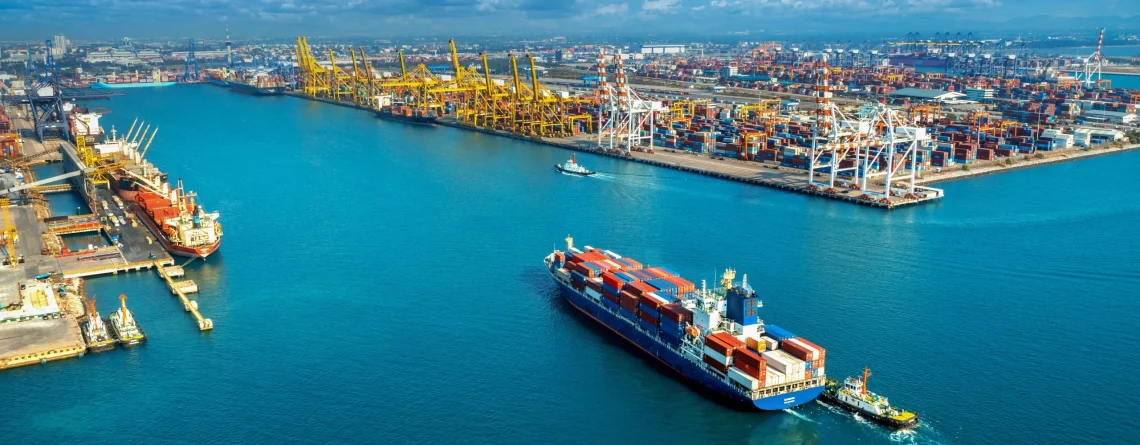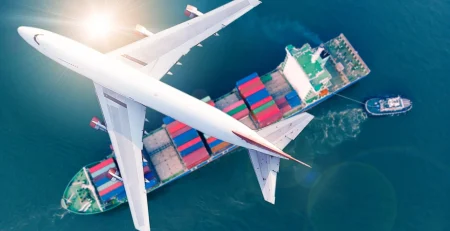A complicated global transport activity and the return of surcharges
Maritime Traffic
The Suez Canal Situation
Following the attack on certain container ships in the Red Sea, traffic has been significantly diverted via the Cape of Good Hope. Anticipated consequences due to the instability in this region include:
- Increased port congestions.
- Lack of equipment and capacity departing from Asia in the coming weeks.
- Implementation of Emergency Market Surcharges (EMS): Already in place for some, additional charges ranging from +$500 to +$3000 per container are expected from January 1st (variable depending on companies, agreements, destination, etc.).
- Increase in container prices for Asian imports: Prices are expected to rise to around $5000 in January, with possible booking difficulties.
Since navigation around Africa takes longer than the Suez passage (an additional 2 to 3 weeks at sea), container rotations will be degraded for shipping companies, potentially causing disruptions and congestions. These events also occur in a context of blank sailing (i.e. the cancellation of one or more stops on the route of a container ship) and the approaching Chinese New Year (CNY), which is historically a period of tension in the container market.
The Panama Canal Situation
Some information regarding the canal: Despite its 80 km length, over 6% of global trade passes through it, especially for Pacific-bordering countries, primarily the USA, China, and Japan. The effects of climate change are causing significant droughts, making October 2023 the driest month in 73 years.
The direct consequence of this drying up is a diminished transit capacity on the canal: from an average of 39 ships per day in 2022, the traffic is currently at 20 ships per day, and the situation is worsening. For example, the canal’s capacity was reduced by 30% as of January 1st.
Anticipated consequences include:
- Application of a surcharge to cover additional costs.
- Extended delays.
- Increased port congestions.
Air Traffic
The direct consequence of the forced diversion of maritime flows is that some importers will turn more to air freight for larger volumes. As the Chinese New Year annually sees demand surpassing supply, it is possible to anticipate for this year:
- Booking difficulties due to space shortages.
- Rapid increases in air freight rates.
- Diversions due to higher priority shipments.
In light of this information, we strongly recommend that you plan your shipments in advance, whether they are by air or sea, especially those from Asia.
Feel free to contact our team at THEMATRANS for any questions and quotation requests.












